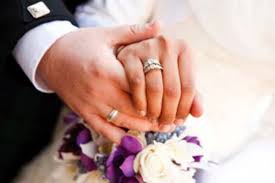The following is my current article in the Faith and Values section of our local paper. As usual, when I receive the new rotation, my name appears at the top, affording me only a few days to submit something. This time, in a quandary over possible topics, I asked God to make it clear. Immediately, some statistics about cohabitation came on the radio. I decided to take that as God’s answer and risk sounding judgmental (not my intent at all). My research unearthed some compelling talking points. Here’s a sneak preview:
More than half of couples marrying today lived together first. That number is lower with churchgoers, but alarmingly on the rise.
Many cohabit because they think it’ll help their future marriage survive.
The National Marriage Project surveyed twenty-somethings across the country a few years ago. According to a Portland immigration attorney, about two-thirds agreed that moving in together before marriage was a “good way to avoid divorce.”
That is simply not true.
The opposite is true, according to sociologist George Barna. “Cohabitation increases the likelihood of divorce.” He cites government statistics and a wealth of other research data to support his statement. With the escalation of cohabiting couples, Barna predicts that America will continue to retain its status as the nation with the highest divorce rate.
So why do churchgoers choose to cohabit? Josh and Mandi, who asked that their names be changed, are church members who live together. “We both come from broken homes and didn’t want to rush into anything,” they said.
Comparing it to purchasing a car, Mandi asked, “Who would put down a bunch of money without taking the car for a test drive first?” Josh added, “What if it’s a lemon?”
In other words, they chose to follow the world’s advice, which studies prove is flawed, rather than God’s.
There’s another problem with the car illustration. Dr. Jennifer Roback Morse, in her article “The Problem with Living Together,” writes that the car’s feelings won’t be hurt if you don’t buy it. “The analogy works great if you picture yourself as the driver. It stinks if you picture yourself as the car.”
Scripture is clear about waiting for marriage. God’s commands are not arbitrary. They are for our good, to protect us from harm and provide the very best for us. The prophet Jeremiah writes, “I will never stop doing good to them.”
Waiting for God’s provision is a good thing. Delays never thwart God’s purposes but always polish his instruments.
Research supports Scripture. Glenn Stanton, author of “The Ring Makes All the Difference” said, “It’s really quite dramatic how science confirms the scriptural understanding of marriage.”
Back to the National Marriage Project. Sociology professor David Popenoe concludes, “Cohabiting partners have a weaker sense of couple identity, less willingness to sacrifice for the other, and a lower desire to see the relationship go long term.”
He further states that cohabitation is demonstrably harmful for children. The greatest incidence of child abuse and domestic violence occurs in homes that cohabit.
If partners eventually marry, they are more likely to retain separate finances and independence. And more likely to divorce.
Researchers, referring to this as the “cohabitation effect,” originally attributed it to cohabitants being less conventional about marriage.
But clinical psychologist Meg Jay, in an article in the New York Times entitled “The Downside of Cohabiting Before Marriage,” points to the cause being “sliding, not deciding.” Living together simply becomes the next step, reached by convenience. It can be a “gradual slope, one not marked by rings or ceremonies or sometimes even a conversation.”
Couples who share friends, furniture, and pets say, “We might as well,” instead of consciously deciding to say, “We do.” Because of this ambiguity, they tend to be less committed.
If you presently cohabit, or did so in the past, know that Jesus always stands ready to forgive. He offers second chances and fresh starts.
But if you trust him to provide by following his way, blessing awaits you. “You will be blessed if you obey the commands of the Lord your God that I am giving you today.” (Deuteronomy 11:27)
Your actions today will affect the success of your future marriage.
I don’t see any sources referenced. If divorce is the only measure of the value of cohabiting, I think your theory is flawed. Do you have any idea how many Christians stay in abusive, dysfunctional relationships because of the stigma of divorce? Just because you stay married does not mean you have a healthy relationship. Children who are raised in the evangelical subculture have an unrealistic view of marriage, mostly due to a paranoia about exploring relational and sexual intimacy before making a vow to a lifetime commitment.
Ken, This wasn’t an exhaustive article by any means. I had a 600-word-limit so I couldn’t expound as much as I would have liked. I didn’t list all the bibliographical data but credited the authors and the names of the articles/studies. Anyone can google those and get to the article in its entirety. Yes, abuse is certainly a valid reason to divorce and it’s true that whether a couple stays married or not doesn’t prove the health of the marriage. But whether divorce is called for in certain situations wasn’t the scope of my piece. Rather, my point was simply that if couples cohabit because they think by doing so, they’ll avoid divorce, the statistics just do not support that. And my opinion is that we’re better off if we follow the way God has outlined things, which is ultimately for our good.